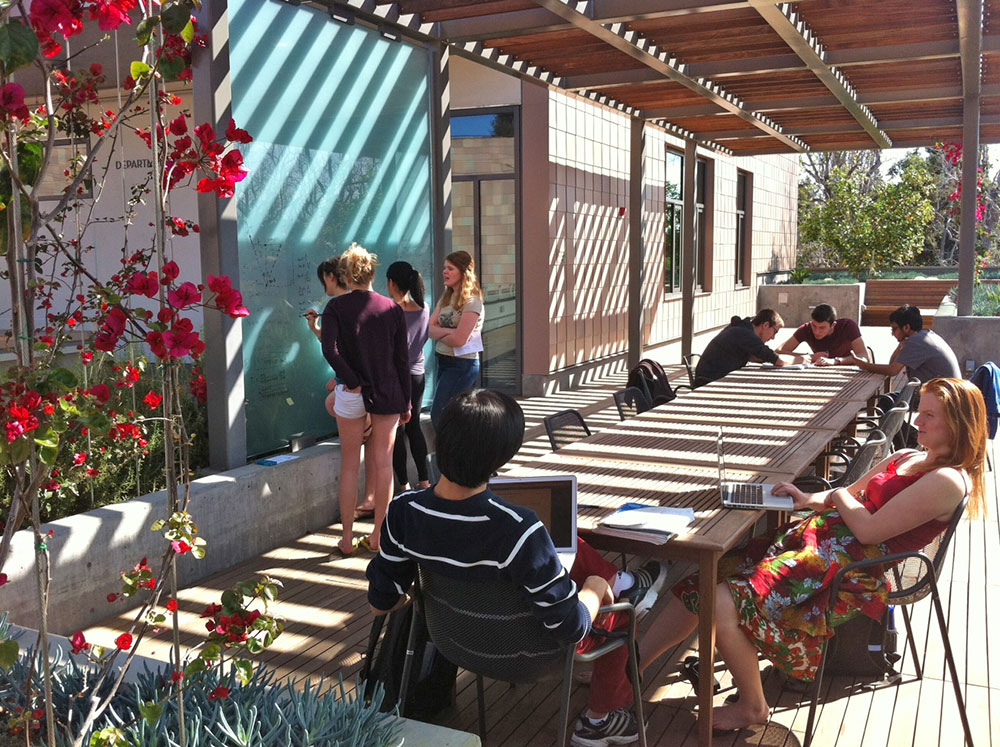New Study Focuses on Mathematical Modeling in the Elementary Grades
October 2, 2014
As part of a groundbreaking national study to examine how intensive training can affect elementary school teachers’ use of mathematical modeling in the classroom, Harvey Mudd College Associate Professor of Mathematics Rachel Levy will co-direct the IMMERSION project, funded by a $1.3 million grant from the National Science Foundation.
Levy will collaborate with school officials and teachers from the Pomona Unified School District (PUSD) as well as with Padmanabhan Seshaiyer and Jennifer Suh at George Mason University, Elizabeth Burroughs at Montana State University and school officials and teachers in Fairfax, Virginia, and Bozeman, Montana.
The IMMERSION project (Integrating Mathematical Modeling, Experiential-learning and Research through a Sustainable Infrastructure and an Online Network) is part of ongoing efforts to improve student proficiency and critical thinking in science, technology, engineering and mathematics (STEM), project leaders say. The Common Core State Standards for Mathematical Practice, recently adopted by many U.S. states for their K–12 curriculum, identify mathematical modeling as one way that students should use mathematics to solve problems encountered in the workplace and life. Mathematics education research has shown that students who work on such real-world problems show less anxiety toward mathematics and are more likely to see mathematics as relevant and useful.
“Mathematical modeling is an important tool for problem-solving and forecasting in many jobs,” says Levy. “The activities provide opportunities for students to practice innovation and communication as well as reinforce and apply mathematics concepts in new contexts.” Earlier this year, Levy led a working group of researchers and teachers gathered by the National Science Foundation, the Society of Industrial and Applied Mathematics and the American Statistical Association to identify ways that mathematical modeling should appear in the K–6 curriculum.
IMMERSION will involve 72 teachers from each of the three school districts over three years. Levy, along with researchers at George Mason University and Montana State University, will oversee the study in partnership with school officials and an advisory board of school district mathematics specialists and nationally recognized mathematics educators. The implementation team will include Gabriela Gamiz, Harvey Mudd College’s director of community engagement, as well as a group of Harvey Mudd undergraduate researchers.
IMMERSION will help K–8 teachers incorporate modeling into their mathematics teaching by providing intensive professional development training during the summer, followed by support and collaboration during the school year as teachers begin to implement mathematical modeling activities in their classrooms—a practice that can have far-reaching effects on how students perceive and use mathematics. The study will focus on increasing the achievement of all students, including special education and advanced students, students with limited English proficiency and economically disadvantaged students.
Selection of the first cohort of 24 teachers in each district will begin next spring, with the first professional development workshops planned for summer 2015. The project will continue through 2017.
